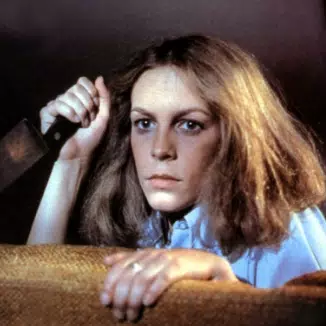Welcome to the second piece in my Oscar series. The topic at hand might seem a bit contradictory: on one hand, I truly believe the Oscar results no longer matter; on the other, I can’t help but keep discussing the awards every year during the heated season—doesn’t this alone prove the Oscars are still relevant?
Let me throw a proposition your way: it’s precisely the media and the audience’s obsession with the Oscars that has rendered its final outcomes increasingly irrelevant. Every year, we see the Academy Awards become a grand spectacle—a star-studded parade, a peak time for gossip, or a Hollywood soiree where directors and actors drink and chat. But it’s no longer a place where classics are born. To put it bluntly, the Oscars’ authority has faded with its overwhelming exposure, and while we still talk about it, we no longer blindly trust its taste in film. This shift mirrors a broader disillusionment with authority, but the Academy’s obsessive self-exposure has played a crucial role.
Let’s start with the Oscars’ most recent buzz. Evidently, the nominated films for the 97th Academy Awards are lackluster compared to previous years. No film or group of films has taken a commanding lead in the race yet. Variety expects this season “to be an unpredictable and heated race,” simply because “[a]nything could happen.”
But guess what? Oscar-related news is still all over the headlines, from the announcement that none of the nominated songs in the Best Original Song category will be performed this year to the controversy surrounding Karla Sofía Gascón, who made history by being the first transgender actress ever nominated for Best Actress. Such news continues to fuel public discourse, even though none of it has to do with which film deserves to win or whose performance is most memorable—which is just the kind of sensational gossip we love.

In fact, you might not remember which film won Best Picture at the 94th Academy Awards (it was CODA), but I bet you remember Will Smith walking on stage and slapping Chris Rock right in his face. Before I checked the winner list, I’d even forgotten Smith won Best Actor that year. And don’t even get me started on the 89th Academy Awards, when Moonlight was almost denied Best Picture in a faux pas when La La Land was mistakenly announced as the winner—yet La La Land is still a classic in many people’s eyes. Sure, films matter, but maybe they don’t matter that much. Let’s face it—there’s often something juicier to talk about. After all, I reckon “Can you believe Will Smith slapped someone at the Oscars?” is a far more entertaining conversation starter than “Did you see CODA?”
People generally have a vehement hankering for gossip and entertainment news, and for most of us, the Oscars’ most captivating moments don’t come from which movie wins Best Picture, but from the gossip surrounding it. What about the cinephiles, though? Honestly, a decade ago, I would have never imagined the present version of me would say the Oscars’ results seem more about the politics of a select group (read: white men) than the actual artistry of cinema and the level of professionalism in filmmaking.
This mindset shift started with the #OscarsSoWhite movement back in 2015 and 2016, when the Academy failed to nominate a single actor of color. That year, coinciding with my own coming-of-age journey, made me question the Academy’s credibility. The hashtag utterly exposed the lack of diversity among Oscar nominees and winners and stripped away the Academy’s mystique. They announced reforms to diversify their membership, but has anything really changed?
Well, improvements were limited. Let’s look at the numbers. Between 2007 and 2015, actors of color made up just 9% of the Best Actress nominees. This figure jumped to 20% from 2016 to 2024. Similarly, women made up 23% of Academy members in 2012, and by 2021, this figure had risen to 33%. But let’s be real: women make up 50.9% of the U.S. population, and around 40% of Americans identify as members of an underrepresented racial or ethnic group. Should we be celebrating these numbers? Definitely not.
As the Academy pats itself on the back for its diversity reforms and proudly declares one “historic moment” after another, I’m left wondering if these achievements are genuinely changing anything or if the Academy is just putting on a show. The 96th Academy Awards only deepened my skepticism when Greta Gerwig, the director of the cultural phenomenon Barbie, was snubbed for a Best Director nomination—despite the film being one of the most talked-about and financially successful releases of the year. Instead of thoughtful reflection by the Academy on this omission, Gerwig got nothing but a cheap jab from that year’s host Jimmy Kimmel.
This year, the controversy surrounding Gascón has turned into an absolute circus. Nominated for her role in Emilia Pérez, she made headlines not for her performance, but for her controversial social media posts. She came under fire for making inflammatory comments about George Floyd, Islam and the Oscars, potentially slimming her chances of bringing home the Best Actress award. Gascón’s nomination was meant to symbolize a victory for the Oscars’ diversity reform, but now it feels more like a ticking time bomb.
As if on cue, a series of offensive tweets written by Gascón over the past years was unearthed by journalist Sarah Hagi. Speaking about the 2021 Oscars, Gascón called the ceremony “an Afro-Korean festival” and likened it to a Black Lives Matter protest. In contrast to the inclusive, multicultural spirit of Emilia Pérez, her comments couldn’t have been more out of step with the film’s message. Of course, after the controversy erupted, the Oscars’ whole diversity campaign was suddenly left with an awkward problem. The director of Emilia Pérez, Jacques Audiard, even distanced himself, saying, “[W]hat Karla Sofía said is inexcusable.”
In an attempt to salvage the situation, Gascón has since apologized and pledged to stay silent during the promotional period. While some unperturbed Oscar voters insist on assessing the film based on its quality rather than her actions, some others are already cold-shouldering her and her film despite her public regret. Public desertion is something Gascón brought upon herself. Her short-lived rise to fame is a perfect example of how the Oscars, while claiming to be a bastion of diversity, will discard anything inconvenient when the “symbolic” moment turns sour.
Gascón’s saga isn’t just about one actor’s fall from grace; it also reflects the Oscars’ hollow diversity agenda. Everything Everywhere All at Once’s success at the 95th Oscars was touted as a breakthrough for diversity, and Gascón’s moment was meant to be the next big leap. But like all token gestures, these “progressive” milestones are really just a smokescreen. The Oscars, much like patriarchal societies that tout a handful of “success stories” of women while ignoring systemic injustice against them, need these symbolic moments to keep the illusion alive. Due to the controversy surrounding its transgender nominee, the Oscars’ intended new round of diversity campaign slammed to a halt before it even started.

And what happens when a symbol like Gascón becomes problematic? It’s swiftly discarded. The Oscars’ so-called diversity reforms were never about making genuine, lasting change—they were about keeping the institution alive in the face of growing public scrutiny. Gascón exists among the nominees to demonstrate the Oscars’ “inclusivity,” but the Academy desperately wants nothing to do with her mistakes. In fact, once her controversy hit, Oscar voters probably silently rejoiced and sighed with relief, as they finally have an easy excuse to avoid actually reckoning with their biases.
After all, the Oscars’ diversity isn’t about meaningful change—it’s about ticking off boxes for a few more “historic moment” headlines every year. Yes, Everything Everywhere All at Once was widely celebrated as a win for diversity, but let’s ask ourselves: did its victory actually change anything? The same familiar faces are still behind the curtain, deciding who gets to win and who gets forgotten.
The Oscars’ so-called diversity reform is, at its core, nothing more than a self-congratulatory performance. It parades a few minority or female nominees to hide its deeply rooted biases and rolls out a few “politically correct” films to prove its “progress.” But when you look at Oscar history, the real power remains firmly in the hands of white men. Until 2024, of all the Oscar nominees, women made up just 17% of the nominees, and minorities even fewer—only 6%. This diversity reform is nothing more than a carefully crafted PR stunt, designed to make the Oscars appear relevant in a world that is increasingly questioning its legitimacy.

Returning to the heart of the matter, does the Oscars even matter anymore? For the average viewer, it’s just an entertainment spectacle; for industry professionals, it may symbolize a career high. But for those who truly care about the art of cinema and fairness, the Oscars have long since lost their meaning. It’s no longer an award for cinematic excellence, but a performance about power, prejudice, and hypocrisy. Gascón said the Oscars are becoming a “ceremony for independent and protest films,” but she’s wrong—because this ceremony has never truly been independent, nor has it ever truly protested anything.
So, let’s keep following the Oscars—not for its results, but for the spectacle of watching it continue to deceive itself and the world in its annual farce. After all, what’s more entertaining than watching a hypocritical performance unfold?
Reference
https://www.inclusionlist.org/oscars/gender
I’ll keep updating my analysis of the Oscar season as we count down to the 97th Academy Awards! Rather than taking a stuffy, formal approach, I want to keep things real and fun. If you enjoy this more casual take on the Oscar season, make sure to follow along!





















































View replies 0
View replies 0
View replies 0